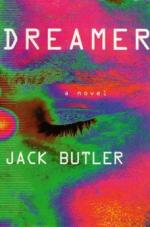|
This section contains 202 words (approx. 1 page at 300 words per page) |

|
Butler's ambitious if not grandiose intention to create a fictional "world" (see Techniques above) within such wide boundaries invites comparison most obviously with the similarly coherent but diverse world of William Faulkner's fiction, and indeed Butler acknowledges the comparison at the same time he disavows any attempt to "imitate" Faulkner. Plans similar in scope, but perhaps less complex than Butler's, that their creators simply did not live long enough to complete include Chaucer's plan for The Canterbury Tales and Edmund Spenser's plan for The FaerieQueene. Butler also acknowledges such influences as the type of "future history" represented in the science fiction of Robert A. Heinlein, Frank Herbert, and Isaac Asimov. Familiar examples of a slightly different sort include J. R. R. Tolkien's sagas of Middle Earth and Robert Jordan's current Wheel of Time series. Thus Butler's plan points to a large, various, and complex fictional realm...
|
This section contains 202 words (approx. 1 page at 300 words per page) |

|




